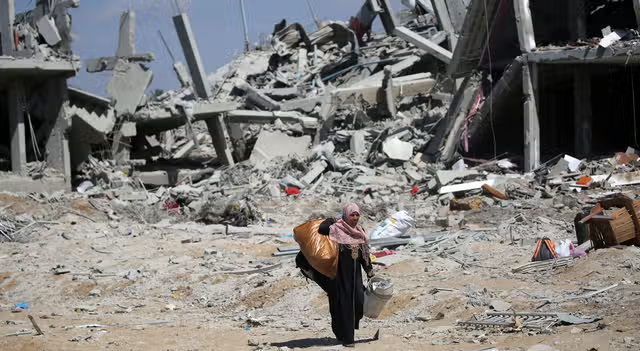More than two dozen Afghan nationals were deported from Germany back to their homeland, marking the first such action since the Taliban's return to power in 2021.
The 28 Afghan nationals were described by government spokesperson Steffen Hebestreit as convicted criminals—though he did not reveal details of their crimes.
Germany's Interior Minister, Nancy Faeser said the deportations were a crucial security measure for Germany, stressing the importance of addressing criminal activity among migrants.
However, the decision—and its implementation—has been complicated by the fact that there are no diplomatic relations between Germany and the Taliban.
It meant that Germany was forced to navigate through alternative channels to carry out the deportations, an indication that it is highly unlikely that Berlin will seek to normalize relations with the Taliban regime.
The development comes after the Taliban recently introduced strict morality laws, including mandates for women to cover their faces, bodies, and voices in public.
The laws have been harshly criticized by German Foreign Minister Annalena Baerbock, who condemned them in social media posts.
The deportations, which Hebestreit revealed had been planned for months, coincided with heightened tensions following a deadly knife attack in Solingen.
The suspect, a Syrian asylum seeker who had evaded a previous deportation order, turned himself in to police on Saturday evening, a day after the attack at a festival marking the city's 650th anniversary.
Federal prosecutors said that he shared the radical ideology of the Islamic State group, which he joined at a point that remains unclear, and was acting on those beliefs when he stabbed his victims repeatedly from behind in the neck and upper body.
He is currently being held on charges of murder and terrorism.
The attack has intensified the national debate on immigration ahead of regional elections in the German states of Saxony and Thuringia, where anti-immigration sentiment is expected to bolster support for populist parties like Alternative for Germany, or AfD.
In response to earlier rising concerns, Chancellor Olaf Scholz vowed in June to restart deportations of criminals from Afghanistan and Syria, following another knife attack by an Afghan immigrant that left a police officer dead and several others injured.
Amnesty International Germany criticized the government's decision to deport the Afghan nationals, accusing it of caving to political pressure during an election campaign.
Secretary General Julia Duchrow condemned the action, arguing that Afghanistan remains unsafe and that the move violates international law.
As Germany tightens its stance on immigration, the debate over the balance between security and human rights continues to intensify.
This article includes reporting from The Associated Press
Disclaimer: The copyright of this article belongs to the original author. Reposting this article is solely for the purpose of information dissemination and does not constitute any investment advice. If there is any infringement, please contact us immediately. We will make corrections or deletions as necessary. Thank you.



